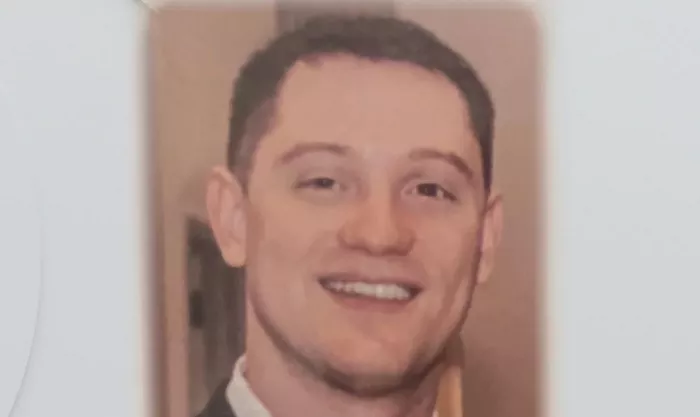The parents of a young Pennsylvania police officer are speaking out after their 26-year-old son took his own life, which they believe was triggered by devastating complications from Lasik eye surgery.
Ryan Kingerski, an officer with the Penn Hills Police Department, had taken a short leave for what is often described as a simple elective procedure. But his parents say the effects of that surgery changed everything.
“He was witty, charming, smart — just a joy to be around,” said his mother, Stefanie Kingerski. “He brought so much pride into our lives.”
Ryan was passionate about his job and shared a strong bond with his twin brother, his friends, and his girlfriend. His parents remember him as vibrant and full of life.
From a young age, Ryan and his brother dreamed of becoming police officers, inspired by their father. So when Ryan joined the force, his parents worried about danger on the job — not an eye surgery.
“We didn’t think twice about it,” said Stefanie. “It’s sold as something simple, safe, and effective.”
Side Effects and Struggle
But according to his family, Ryan never returned to the police force after his Lasik surgery.
They say he began suffering from severe and persistent side effects, including headaches, double vision, eye floaters, and dark spots.
“He told us his head hurt constantly,” said his father, Tim Kingerski. “He couldn’t focus. His vision was blurry. He was in pain.”
Ryan visited multiple specialists, searching for relief. His family says he was overwhelmed with regret and felt misled.
“‘Why would they do this to me? Why didn’t they tell me?’” Stefanie recalled him asking. “He trusted that doctor.”
Ryan even shared his experience online, hoping to warn others. After his post, the clinic sent a letter dropping him as a patient, his father claims.
In January, Ryan died by suicide.
“He left a note that said, ‘I can’t take this anymore. Lasik took everything from me,’” Tim said. “That’s what we were left with.”
Doctor and Company Respond
KDKA Investigates reached out to the LasikPlus clinic on McKnight Road and the doctor who performed the surgery. LasikPlus declined an interview but released a statement, saying:
“Legal requirements prevent us from speaking to the specifics of any patient, but suicide generally cannot be reduced to any single cause. To be clear, there is no clinical evidence linking suicide to LASIK eye surgery.”
The company also stated that all patients are given informed consent forms explaining the risks, benefits, and alternatives ahead of the procedure.
Stories Like Ryan’s Are Not Rare, Says Advocate
Ryan’s story has since been shared on a social media page run by Hayden Hutchins, who also suffered complications from Lasik. Hutchins now shares stories from patients who say they were not properly warned of risks.
“Every story sounds the same,” Hutchins said. “People are told they’re perfect candidates, that the procedure is safe, and then they’re left to deal with life-altering side effects.”
Hutchins is now studying to become an optometrist, inspired by conversations with people like Ryan.
“I just want people to have more information. If I had seen something like my page before I got Lasik, I never would’ve done it.”
According to the American Refractive Surgery Council, about 500,000 Americans undergo Lasik each year, and the reported complication rate is under 1%.
But Ryan’s parents say that number doesn’t tell the full story.
“We were left with a note. We visit our son in a cemetery,” Stefanie said. “For us, one life lost is one too many.”
Related topics:


